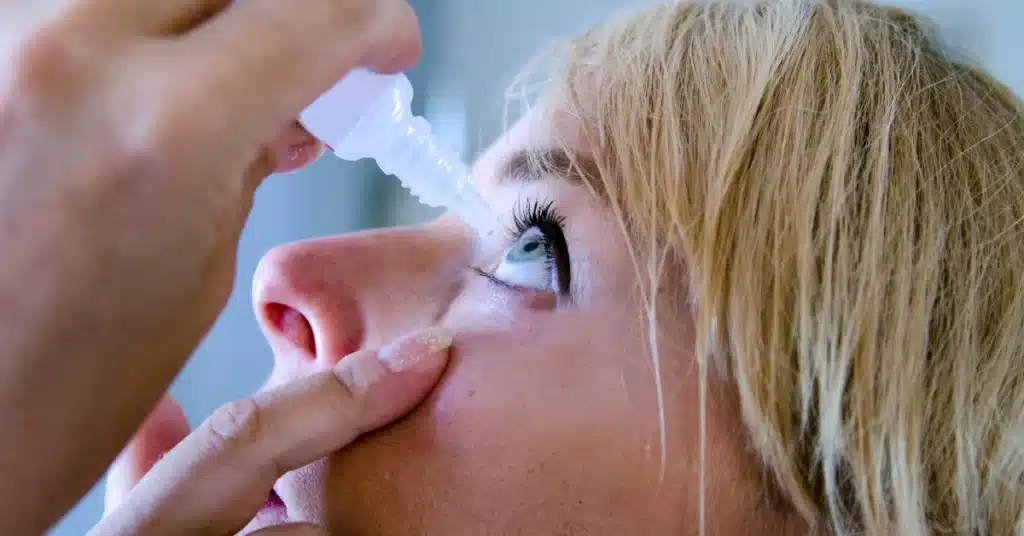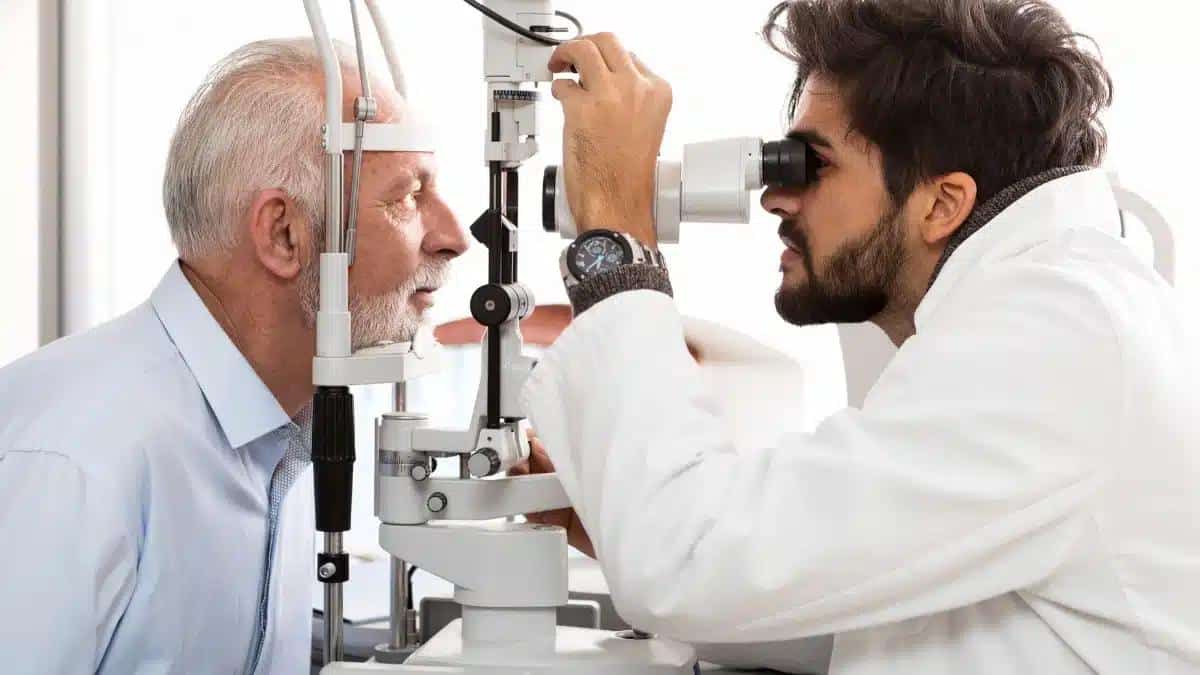Glaucoma is an eye disorder that is frequently associated with increased intraocular pressure.
The elevated intraocular pressure in your eye is the most common cause of Glaucoma. It may damage the optic nerve, which transmits images to the brain.
Glaucoma can cause irreversible vision loss or complete blindness in a few years if the damage becomes severe and left unaddressed.
Although it is impossible to restore lost eyesight, decreasing eye pressure can help you maintain your current level of vision.
This article will highlight the Glaucoma causes and risk factors making you prone to the conditions.
We will also list the common treatment methods used to prevent vision loss caused by Glaucoma.
Glaucoma causes
There are four major types of Glaucoma, each with different symptoms and causes.
These include Open-Angle Glaucoma, Angle-Closure Glaucoma, Congenital Glaucoma, and Secondary Glaucoma.
Although the exact cause of Glaucoma is unknown, experts believe that increased intraocular pressure is probably the cause for each form of Glaucoma.
Your eye constantly secrete a fluid known as aqueous humor.
The same amount of aqueous should drain out of your eye as it comes in.
Hence, the intraocular pressure, or IOP, is maintained steady through this mechanism.
However, fluid accumulates inside the eyes if the drainage angle isn’t functioning correctly.
This leads to high eye pressure, eventually damaging the optic nerve that transmits picture signals to the brain.
As these nerve fibers degrade, your eyesight turns into blind spots in certain areas.
These blind spots could go undetected until most of your optic nerve fibers have been destroyed.
If the situation is not addressed on time, it leads to the complete degradation of all the fibers, making you blind due to Glaucoma.
Apart from increased IOP, blunt or chemical injury to your eye, severe eye infection, and tumor may cause Glaucoma.
Also, medical conditions like Diabetes, Hypothyroidism, an advanced cataract, and inflammatory conditions can also lead to Glaucoma.
Although it is uncommon, eye surgery performed to treat another problem might sometimes lead to it.
Want to know about the symptoms of Glaucoma? Read our article: Understanding Glaucoma Symptoms: Signs of Silent Vision Loss
Risk factors for Glaucoma
 Source: Atlasstudio
Source: AtlasstudioBesides increased intraocular pressure, several risk factors are found to be associated with Glaucoma, making you more susceptible to the condition.
You are more prone to Glaucoma if you:
- Have a family background of Glaucoma
- Are nearsighted or farsighted
- Take some steroid medications like Prednisone
- Take certain medications for bladder control or seizures or some over-the-counter cold remedies
- Had an injury to your eyes
- Have thinner corneas than normal
- Are above 40 years of age
- Have a history of eye surgery
- Have high blood pressure, heart disease, Diabetes, or Sickle cell anemia
- Belong to African American, Irish, Russian, Japanese, Hispanic, Inuit, or Scandinavian ancestry
Treatments for Glaucoma
 Source: Syda_Productions
Source: Syda_ProductionsAlthough the damage caused by Glaucoma to your vision can not be reversed, its progression may be slowed down with proper and timely treatment.
The goal of treatment is to either decrease the amount of fluid produced in the eye or increase its outflow.
Medications and surgery are two possible ways to manage Glaucoma.
Doctors usually employ eye drops like prostaglandins, Carbonic Anhydrase Inhibitors, Cholinergic Agents, and Beta Blockers as the first line of treatment for Glaucoma.
These eye drops reduce intraocular pressure when used daily.
Although eye drops for Glaucoma can help you maintain your eyesight, there are side effects of Glaucoma eye drops, like itching, redness, and swelling in the eyes.
Hence, consulting an eye doctor is essential before opting for any medication to treat Glaucoma.
There are primarily two kinds of laser surgery to cure Glaucoma.
They facilitate the outflow of the excess aqueous humor from the eyes.
Trabeculectomy can be used in place of or in addition to medication for patients with Open-Angle Glaucoma.
The drainage angle is corrected by the eye surgeon using a laser.
In this manner, fluid exits the eye correctly, and intraocular pressure is decreased.
Iridotomy helps patients with Angle-Closure Glaucoma.
During the procedure, the ophthalmologist makes a small hole in the iris using a laser.
This opening facilitates the outflow of fluid from the eyes.
Conclusion
Glaucoma is a common eye condition leading to vision loss if left unaddressed.
The main cause behind Glaucoma is unknown.
It is believed that it occurs when excess fluid builds up inside the eyes, leading to increased intraocular pressure.
The increased pressure inside the eyes damages the optic nerve, causing blindness.
However, there are several other risk factors that make you prone to Glaucoma.
Belonging to African American, Irish, Russian, Japanese, Hispanic, Inuit, or Scandinavian ancestry is one of them.
Glaucoma can not be cured completely but can be slowed down with medications and surgery.
Frequently Asked Questions
What are the main causes of Glaucoma?
Increased intraocular pressure is the main cause of Glaucoma.
However, risk factors like increased age, having Diabetes and other health conditions, and intake of corticosteroids make you more prone to Glaucoma.
What deficiency causes Glaucoma?
Deficiency of Vitamin A and Vitamin B is found to cause Glaucoma.
A study suggests that Vitamin A and B intake is associated with a low prevalence of Glaucoma.
Who can develop Glaucoma?
Though Glaucoma may affect everybody, some populations are more susceptible than others.
These groups of people include Diabetics, African Americans over 40, and all individuals over 60.
People with a family history of Glaucoma are also at the risk of developing Glaucoma.
Can Glaucoma be treated?
Yes, Glaucoma can be treated.
Although Glaucoma can not be cured, and the damage caused by it to your vision can not be reversed.
However, the progression of Glaucoma can be slowed down with early diagnosis, medications, and surgery.
Can I reduce my intraocular pressure naturally?
Yes, you can reduce your eye pressure naturally with a balanced diet, exercise, and limiting caffeine intake.
When referencing outside resources, GoodrxMedicine always provides full citations. To learn more about the measures we use to maintain the quality of our content, please review our Content Information Policy.











